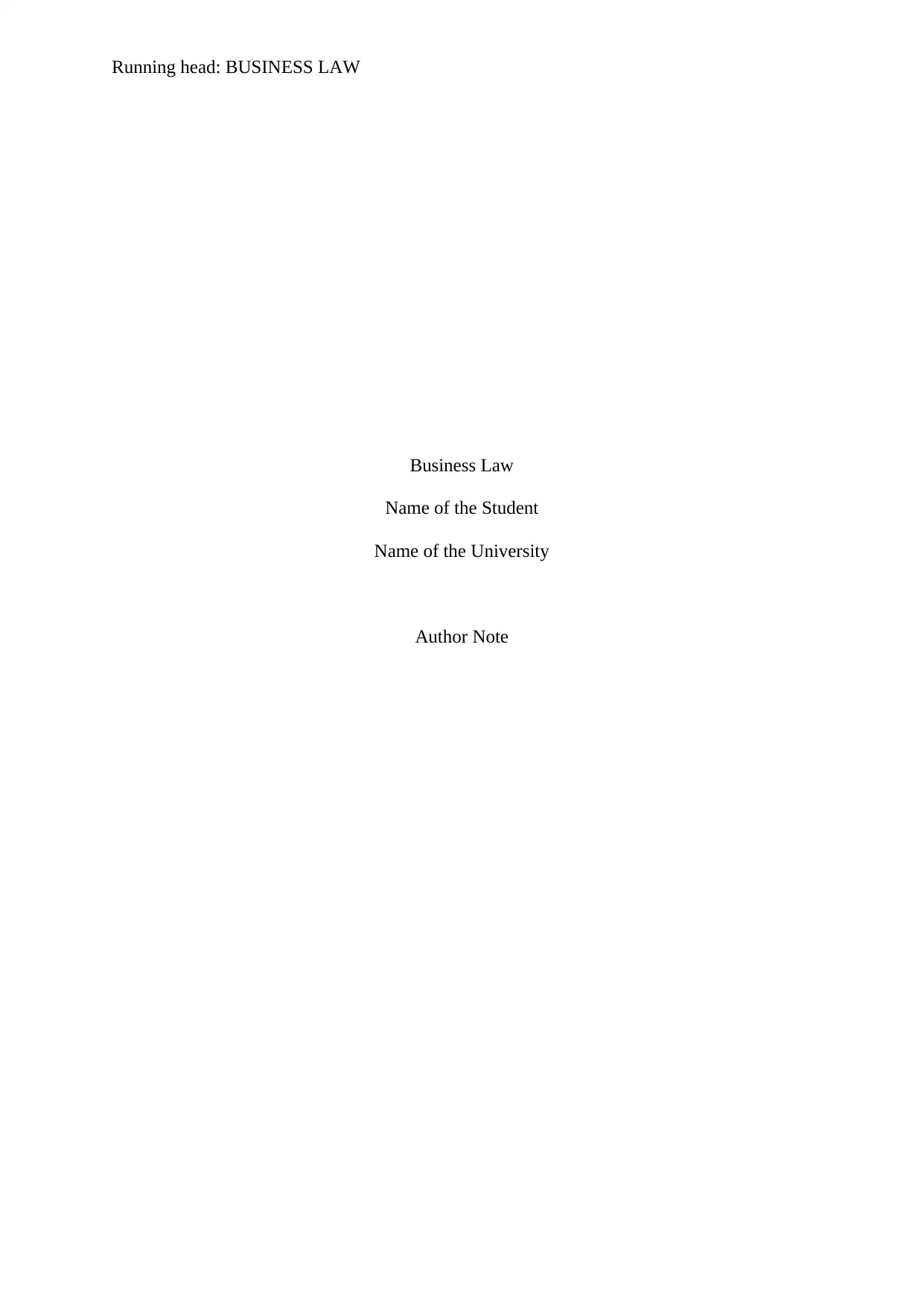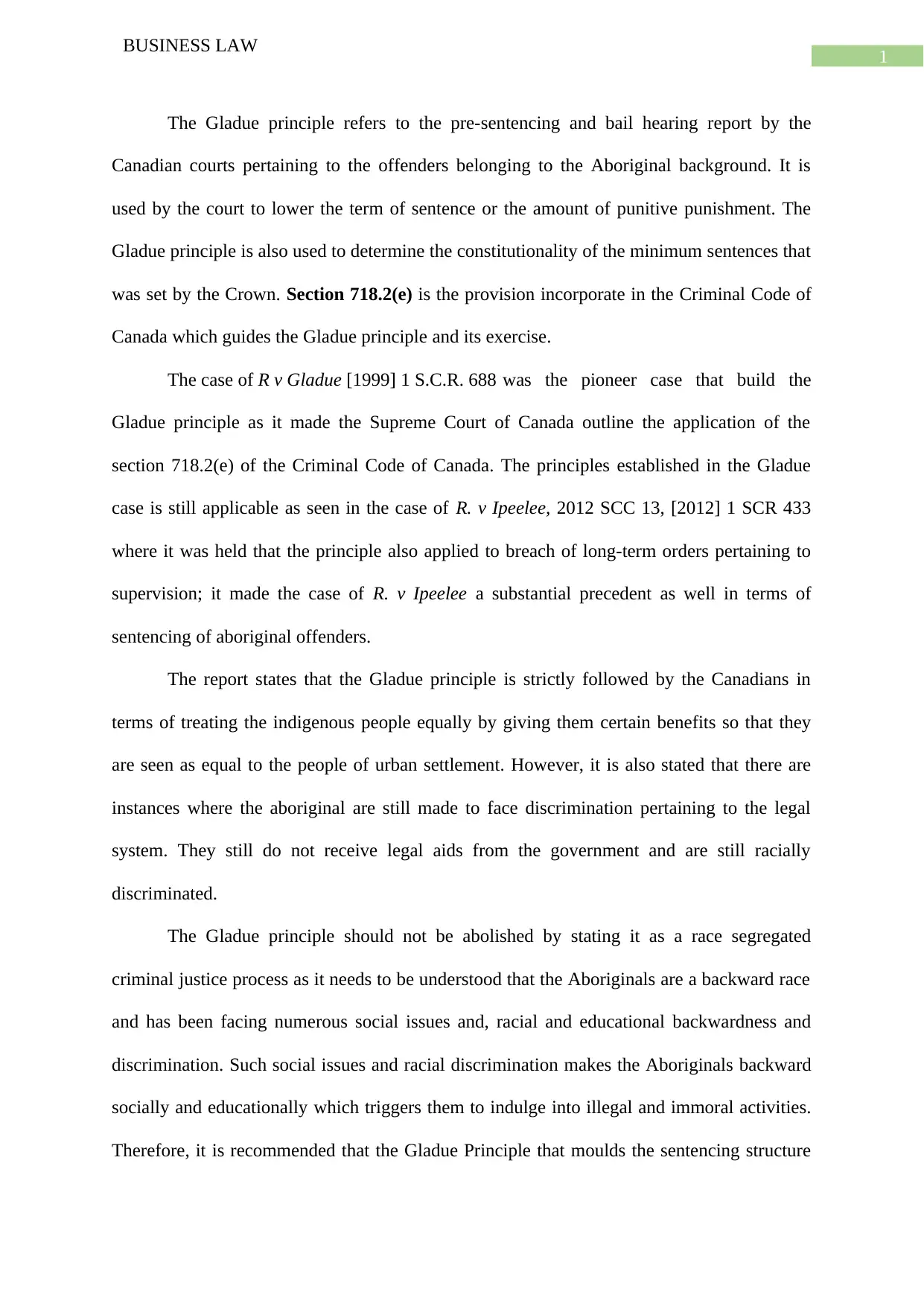Business Law: The Gladue Principle, Sentencing, and Aboriginal People
VerifiedAdded on 2022/11/23
|3
|446
|33
Report
AI Summary
This report analyzes the Gladue Principle within the context of Canadian business law, focusing on its application to Aboriginal offenders. It examines the principle's origins in R v Gladue [1999] and its subsequent development, including the case of R. v Ipeelee, 2012. The report highlights the principle's role in shaping sentencing practices to address the social and systemic disadvantages faced by Aboriginal people, advocating for its continued use despite potential criticisms. It references the Criminal Code of Canada, specifically section 718.2(e), and discusses the ongoing challenges of racial discrimination within the legal system. The report emphasizes the importance of the Gladue Principle in balancing the social and educational backwardness that contributes to criminal behavior among Aboriginal communities.
1 out of 3




![[object Object]](/_next/static/media/star-bottom.7253800d.svg)